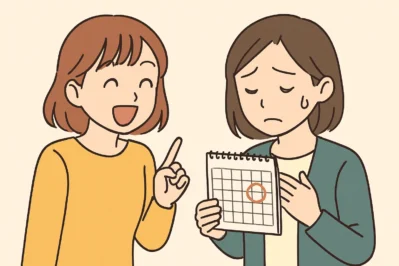Sorry, I Have Plans! Your Guide to Politely Declining in Korean
Hello! This is [Maeil Hangeul], here to upgrade your Korean skills!
Have you ever been invited to do something fun in Korea, but you were already busy? Saying “no” can be tricky in any language, and you want to do it without hurting your friend’s feelings. Today, we’re going to learn how to politely decline an invitation because you already have plans.
This is super useful! Lately in Korea, getting tickets for concerts or entry to special pop-up stores for K-pop idols is a huge deal. Imagine your friend invites you out, but you finally have a chance to go to a super popular event! You’ll need today’s phrases to explain the situation smoothly. Let’s learn how to sound like a natural!
Core Expressions You Need to Know
Here are three essential phrases to politely turn down an invitation.
1. 어떡하죠? (Eotteokajyo?)
- Romanization: Eotteokajyo?
- English Meaning: What should I do? / Oh no…
- Detailed Explanation: This is a fantastic way to start your refusal. It literally means “What should I do?”, but it’s used to show that you feel bad and are in a difficult position. It’s much softer and more considerate than starting with “No.” You’re not actually asking for a solution; you’re expressing your regret. Use this with friends and people you are close to.
2. 약속이 있어요. (Yaksogi isseoyo.)
- Romanization: Yaksogi isseoyo.
- English Meaning: I have plans. / I have an appointment.
- Detailed Explanation: This is the most common and direct way to say you’re unavailable. ‘약속’ (yaksok) means “promise” or “plan,” and ‘있어요’ (isseoyo) means “to have.” It can be used for any kind of plan, whether it’s meeting another friend, going to the doctor, or studying at the library. It’s polite and clear. For a slightly more formal situation, you can use 선약이 있어요 (seonyagi isseoyo), which means “I have a prior engagement.”
3. 다음에 꼭 같이 가요. (Daeume kkok gachi gayo.)
- Romanization: Daeume kkok gachi gayo.
- English Meaning: Let’s definitely go together next time.
- Detailed Explanation: This is the magic phrase! After declining, you should always say this to show that you are still interested in spending time with your friend. It reassures them that you’re not rejecting them, just the invitation for that specific time.
- 다음에 (daeume): Next time
- 꼭 (kkok): For sure / Definitely
- 같이 (gachi): Together
- 가요 (gayo): Let’s go
Example Conversation
Let’s see how these phrases work in a real conversation. Imagine A wants to see the new hit movie “Seoul Starlight,” but B has plans to go to a K-pop fan event.
- A: 지수야, 이번 주 토요일에 새로 나온 영화 ‘서울의 별빛’ 보러 갈래?
- (Jisoo-ya, ibeon ju toyoire saero naon yeonghwa ‘Seourui Byeolbit’ boreo gallae?)
- Hey Jisoo, do you want to go see the new movie ‘Seoul Starlight’ this Saturday?
- B: 아, 어떡하죠? 나 그 영화 정말 보고 싶었는데… 토요일에 약속이 있어요.
- (A, eotteokajyo? Na geu yeonghwa jeongmal bogo sipeonneunde… toyoire yaksogi isseoyo.)
- Oh no… I really wanted to see that movie… but I have plans on Saturday.
- A: 아, 진짜? 무슨 약속인데?
- (A, jinjja? Museun yaksoginde?)
- Oh, really? What are you doing?
- B: 친구랑 요즘 제일 인기 있는 아이돌 그룹 ‘이클립스’ 팬 사인회에 가기로 했어.
- (Chingurang yojeum jeil ingi inneun aidol geurup ‘Ikeullipseu’ paen sainhoe-e gagiro haesseo.)
- I’m going to a fan signing event for ‘Eclipse,’ the most popular idol group these days, with a friend.
- A: 와! 대박! 괜찮아, 재밌게 놀아!
- (Wa! Daebak! Gwaenchana, jaemitge nora!)
- Wow! Awesome! No worries, have fun!
- B: 응! 우리 다음에 꼭 같이 가요! 내가 팝콘 쏠게!
- (Eung! Uri daeume kkok gachi gayo! Naega papkon ssolge!)
- Yeah! Let’s definitely go together next time! I’ll buy the popcorn!
Culture Tip & Trend Deep Dive
In Korea, maintaining harmony in relationships is very important. This is related to the concept of 눈치 (nunchi), which is the subtle art of sensing other people’s thoughts and feelings.
When you decline an invitation, you’re using your nunchi to do it in a way that doesn’t make the other person feel rejected. That’s why the 3-step combo we learned today is so effective:
- Express regret: (어떡하죠?)
- State the reason clearly: (약속이 있어요.)
- Suggest a future plan: (다음에 꼭 같이 가요.)
You’ll see this pattern everywhere in K-dramas. When the main character has to cancel a date because of work, they will almost always use this polite formula. Nowadays, Korean Z-generation also uses this on messaging apps like KakaoTalk. They might add a cute crying emoji (ㅠㅠ) after “어떡하죠?” to show they are extra sorry. Using this combo will make you sound not just fluent, but also culturally aware!
Let’s Practice!
Time to check what you’ve learned.
- Fill in the blank: Your friend asks you to go shopping, but you have to study for a test.
- A: 우리 쇼핑하러 갈까? (Shall we go shopping?)
- B: 미안해, 나 시험공부 때문에 ___________ 있어. 다음에 가자! (Sorry, I have ________ because of my test studies. Let’s go next time!)
- Make a sentence: A friend invites you to a concert on Friday, but you already have dinner plans with your family. How would you politely say no and suggest meeting next time? (Try to use at least two of the expressions we learned today!)
Great job today! You’re now ready to handle social invitations like a pro.
Try making your own sentence for the practice question #2 in the comments below! We’d love to see it.
다음에 또 만나요! (See you next time!)






